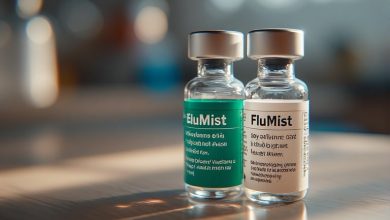

7 Surprising Ways to Boost Bone Density Naturally That Actually Worked for Me
I Thought My Bones Were Just “Fine”… Until I Got Out of Bed and Heard a Crack
You know that moment when something feels… off?
I had one of those on a chilly Tuesday morning. Rolled out of bed, went to stretch like I always do, and — crack. Not the dramatic, movie-style neck pop. No. It was my hip.
I’m not even that old. Early 30s. Active-ish. But the sound? It was ancient. Like, haunted attic ancient.
That moment spiraled into months of low-key panic. Google searches at 2 AM. Blood tests. Vitamin D levels below sea level. A doctor giving me that look like, “You’ve been skipping your calcium, huh?”
Guilty.
That was the start of my unglamorous, weirdly emotional journey to figure out ways to boost bone density naturally — without meds, without surgery, without becoming a dairy-fueled maniac.
Here’s what I learned. The hard, messy, hilarious way.
What Even Is Bone Density? And Why Does It Suck to Lose It?
Okay, real talk — I didn’t even know bone density was a thing to worry about unless you were 80 and made of dust.
But turns out, it’s basically how strong and solid your bones are. Think of your skeleton like a sponge. When your bone density is good, the sponge is thick and firm. When it’s low? It’s like that sad, dried-out sponge under your sink that flakes when you look at it.
I was on my way to becoming that sponge.
And the wild part? I wasn’t even doing anything terribly wrong. Or so I thought.
But bones aren’t just about not breaking. Low bone density messes with your posture, your balance, your energy. It creeps into your life like a silent ninja.
So yeah. I decided I wasn’t going down without a fight.
1. Walking Became My Drug (But Not the Lazy Kind)
I used to think walking didn’t “count” as exercise. Like, if you’re not dripping sweat, it’s useless.
Wrong.
What worked for me was intentional, weighted walking. I strapped on a cheap $35 weighted vest (got it off Amazon, no regrets) and started doing 30-minute power walks. Not jogs. Walks — fast, deliberate, posture-perfect.
I did it daily. Even on days I didn’t feel like it. Especially on those days.
Within weeks? My knees didn’t ache going up stairs. My hips stopped cracking. My back stopped sounding like microwave popcorn.
Weighted walking = gentle, consistent bone loading = magic.
2. Sardines (Yeah, Those Fishy Little Weirdos)
Brace yourself: I became a sardine girl.
I know. The smell. The texture. The fact that they look like fish-shaped ghosts.
But my doc mentioned sardines casually, like “Oh yeah, if you want bones of steel, eat the bones in the fish.”
Wait. What?!
Turns out, canned sardines (in water or olive oil) are loaded with:
-
Calcium
-
Vitamin D
-
Phosphorus
-
Omega-3s (which are anti-inflammatory, btw)
I started mixing them into salads, smashing them on toast with lemon, even blending them into pasta sauce (don’t knock it till you try it).
And now? I crave the little creeps.
3. Ditching the Soda (But Not for the Reason You Think)
I used to chug Diet Coke like it was a personality trait.
But guess what? Excess phosphorus from soda can leach calcium from your bones. Like, literally suck it out.
Not gonna lie, quitting was rough. Headaches. Cravings. Actual dreams about carbonation.
I switched to:
-
Sparkling water with lime
-
Water with frozen berries (bougie AND effective)
My energy went up. My digestion improved. And I didn’t miss the soda after the first two weeks.
Okay, maybe a little.
4. Sunlight Saved Me (Yes, Even as an Indoor Cat)
I’m a screen person. Work from home, doomscroll before bed, Netflix binge on weekends.
So when my Vitamin D levels came back embarrassingly low, it wasn’t a shock — just a bummer.
But instead of high-dose pills (they made me feel weirdly wired), I made a pact with myself: 15 minutes of sun every day, minimum.
-
Morning walks = sun + bone loading
-
Balcony reading time (with sunscreen on my face)
-
Weekend hikes (okay, mostly strolls with trail mix)
I tracked my levels over 3 months. They tripled. No meds. Just light.
Also, my mood? So. Much. Better.
5. Strength Training Without Becoming a Gym Rat
I used to hate the gym. Like, viscerally.
Then I learned that bones respond to resistance. They need a reason to get stronger.
So I did the laziest thing ever: I downloaded a bodyweight workout app and started with 10-minute sessions, 3x a week.
Squats. Push-ups. Step-ups. Planks.
Eventually, I graduated to resistance bands. Then dumbbells. Now I lift 2-3x per week — still from home, in my PJs, with a cat judging me.
No crazy gains. But my body feels stable. Strong. Grounded.
And weird flex (literally): I feel my bones now.
6. Collagen Wasn’t Just a TikTok Trend — It Helped
I was super skeptical of this one.
Collagen peptides? Sounded like influencer nonsense.
But I tried it because my nails were splitting and my hair was falling out — both signs of low mineral absorption, apparently.
I started adding 1 scoop of unflavored collagen to my coffee every morning.
Three months later?
-
Nails = stronger
-
Skin = smoother
-
Joints = quieter
The collagen I used had type I and III, which are the ones most linked to bone strength.
Maybe placebo. But honestly? I’m not stopping.
7. Sleep. Freaking. Matters.
This one hit me like a truck.
Your bones rebuild while you sleep. Not when you eat kale. Not when you deadlift.
When you sleep.
And I was sabotaging myself with 5-hour nights and a phone glued to my face.
So I committed to:
-
10:30 PM bedtime
-
No phone after 9:30 (mostly)
-
Magnesium before bed
-
White noise machine (life-changing)
Now I wake up feeling… whole. Like my body is rebuilding, not just barely surviving.
The Stuff That Didn’t Work (At Least For Me)
Let’s get honest:
-
Milk made me bloated. Switched to fortified almond milk.
-
High-dose calcium supplements messed up my digestion.
-
Vibration platforms (those shaky machines) felt like a scam.
-
Bone broth? Meh. Tasted like sadness unless I loaded it with herbs.
FAQs I Constantly Asked Myself (and Googled at 1 AM)
Can you reverse low bone density naturally?
Sort of. You can improve it, and definitely slow or stop the loss. Some people even regain density with lifestyle changes. I saw measurable improvement in my DEXA scan after 9 months.
Do I need to eat dairy?
Nope. Leafy greens, tofu, sardines, fortified plant milks — all solid options.
How long does it take to see results?
I started feeling better within 4–6 weeks. Real test results took about 6–9 months. It’s not fast, but it’s real.
Is this just for women?
Nope. Men lose bone density too, especially after 40. Bros, take care of your bones.
Okay, that was a lot.
If you’re still reading this, here’s the truth: I didn’t expect to care about bone density. I didn’t expect it to become this weirdly emotional journey of rebuilding — literally and metaphorically.
But it did. And I’m better for it.
So if you’re in the same boat — or sponge — just start. Walk around the block. Eat a sardine. Sit in the sun. Skip the soda. Lift a little weight.
It doesn’t have to be perfect. You just have to begin.
And if you ever hear a mysterious crack getting out of bed?
Trust me. Take it seriously — and take your bones back.


